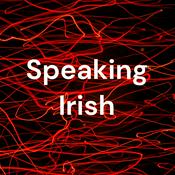8 episodes
- According to Hume, many nonhuman animals (or beings whom he sometimes calls 'sensible creatures') are analogous to human beings in respects of the body and the mind. We are able to sympathise with an animal in similar ways we sympathise with another human being.
Copyright 2013 La Trobe University, all rights reserved. Please contact for permissions. - ‘Sympathy’ (or what is now often called ‘empathy’) is in Hume’s view a complex mechanism of the human mind which relies on the combined operation of three more fundamental principles: the ‘copy principle’, principle of ‘association of ideas’, and the principle of more vivid perceptions ‘enlivening’ less vivid associated perceptions.
Copyright 2013 La Trobe University, all rights reserved. Please contact for permissions. - According to Hume, all the objects of human inquiry and knowledge can be divided into two kinds (and only two kinds). They are 'relations of idea' on the one hand, which are discoverable by reason independent of real existence in the universe, and 'matters of fact' on the other, which are discoverable by experience.
Copyright 2013 La Trobe University, all rights reserved. Please contact for permissions. - What Hume calls the ‘association of ideas’ is a fundamental operating ‘principle’ (i.e. mechanism) of the human mind. The principle operates by resemblance, by contiguity, and by causes and effect.
Copyright 2013 La Trobe University, all rights reserved. Please contact for permissions. - Hume divides all 'perceptions' (i.e. experiences) into 'impressions' and 'ideas'. This theory device gives him a more finely grained account of the operations of the mind than either Locke or Descartes have. Impressions are original 'perceptions of the human mind' which are vivid, forceful, strong or lively. Ideas are the 'faint images' of the original impressions.
Copyright 2013 La Trobe University, all rights reserved. Please contact for permissions.
More Education podcasts
Trending Education podcasts
About Hume
If Descartes is the father of modern philosophy, Hume is the person who gave shape to the contemporary philosophical world. First by querying Descartes' theories about knowledge, and then developing his own modest account of knowledge, and later his theories of ethics and aesthetics.
Podcast websiteListen to Hume, The Mel Robbins Podcast and many other podcasts from around the world with the radio.net app

Get the free radio.net app
- Stations and podcasts to bookmark
- Stream via Wi-Fi or Bluetooth
- Supports Carplay & Android Auto
- Many other app features
Get the free radio.net app
- Stations and podcasts to bookmark
- Stream via Wi-Fi or Bluetooth
- Supports Carplay & Android Auto
- Many other app features


Hume
Scan code,
download the app,
start listening.
download the app,
start listening.






































